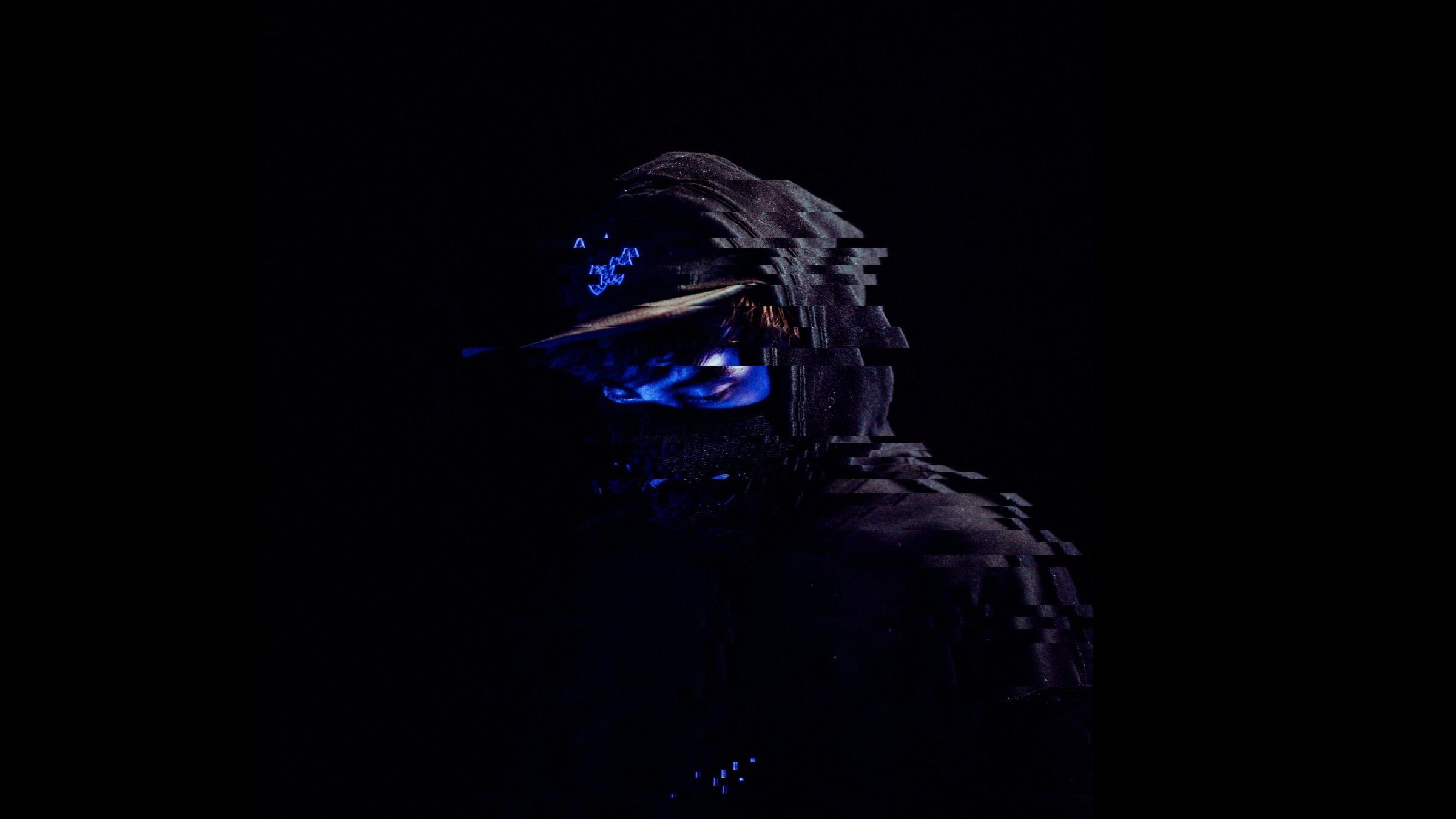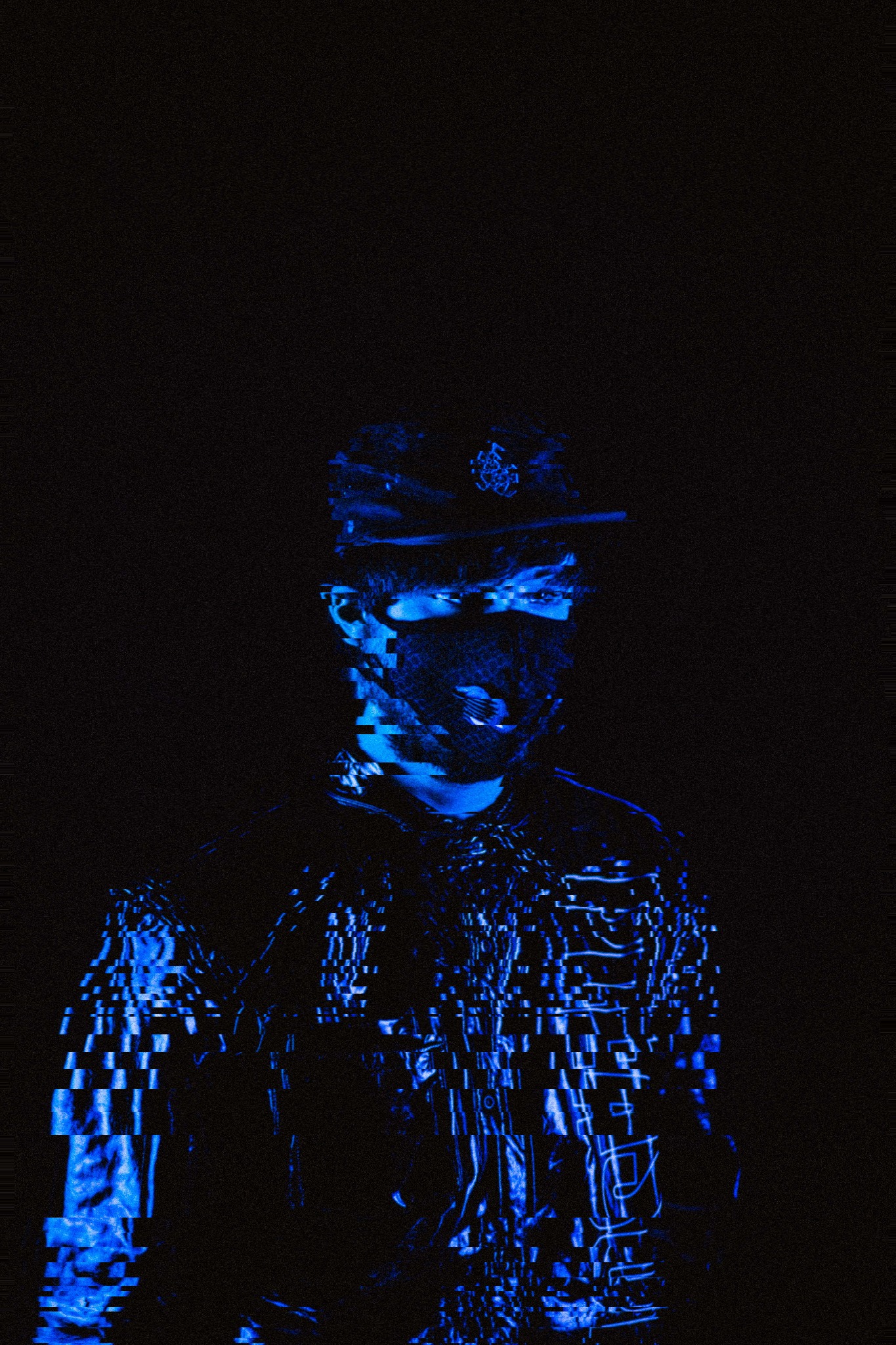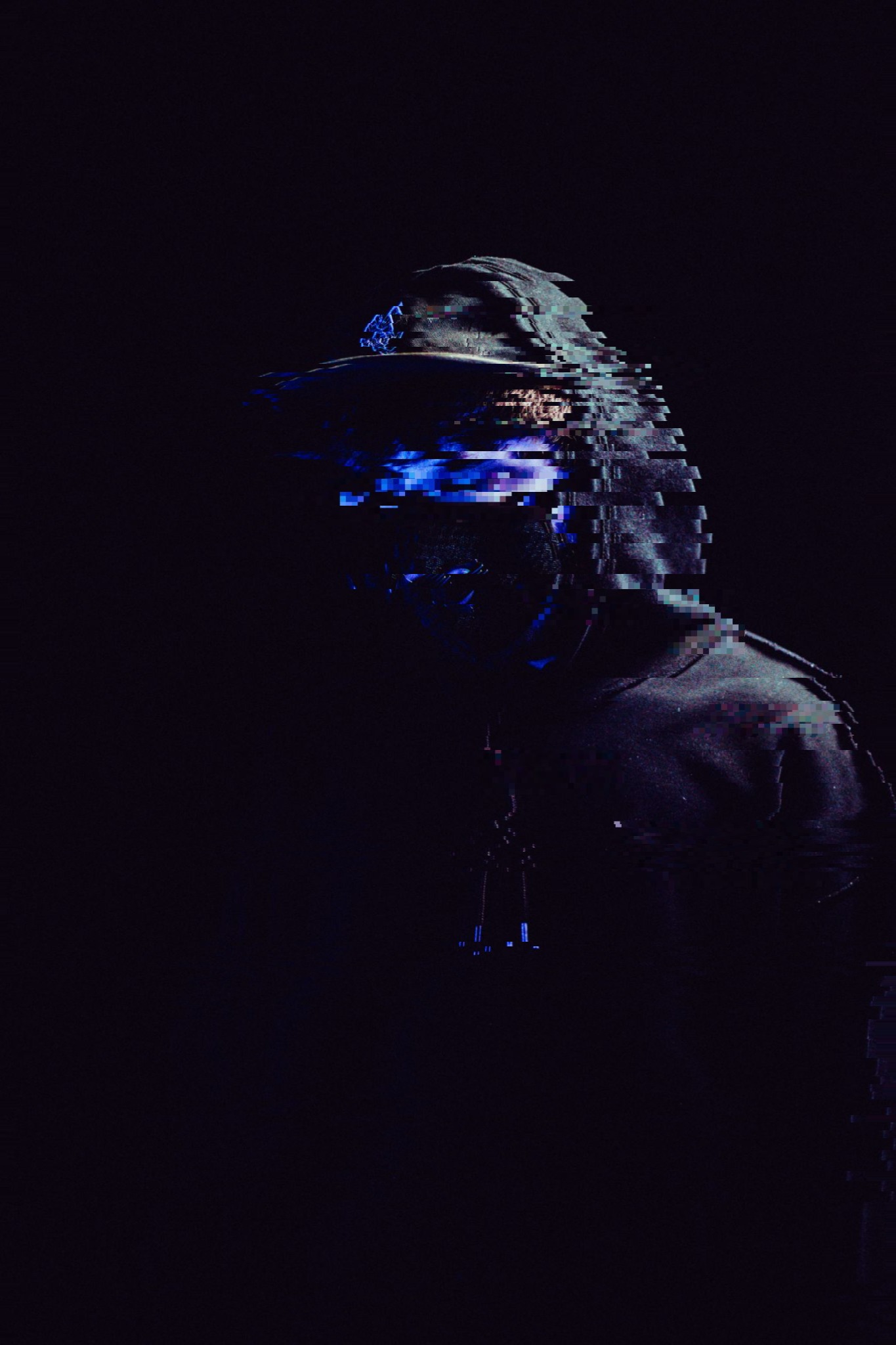Bubblin’ Up: Little Snake
Brainfeeder's youngest alumni gives his first interview.

Bubblin’ Up: Little Snake
Brainfeeder's youngest alumni gives his first interview.
Gino Serpentini holds the title of the youngest Brainfeeder alumni. Now 20, he made his debut on Flying Lotus’ label aged just 19, having been producing for just over 12 months. Hearing his early Soundcloud uploads, Minneapolis label Renraku snapped Serpentini up for an EP debut, which then caught FlyLo’s attention, who described Serpentini’s beats as “fkn insane” and promptly signed him to Brainfeeder to release ENTER and also contribute to the label’s 10th anniversary compilation.
No more than a year after his debut EP, Serpentini found himself headlining Low End Theory, featured on Noisia Radio, and sharing the stage with artists he had originally taken inspiration from.
Residing in Calgary, Alberta, Serpentini’s music balances intricacy and explosive bass weight, and is played by the likes of Amon Tobin, edIT of The Glitch Mob, Flying Lotus, and many more. Although club-ready and driving, there’s pragmatism at the root of Serpentini’s work, for it serves as a tool for mental stability. With a new EP incoming this week on Brainfeeder and having signed to Madison House to begin touring North America, Serpentini is an artist on the rise. We took the opportunity to catch up with him to learn more about his work.
In support of the interview, Little Snake prepared an exclusive mix for XLR8R, available for download here.
How did you first connect with Flying Lotus and Brainfeeder?
I guess the short answer is the internet. One day I woke up about two or three months after my debut EP dropped, and back then I had only a handful of Twitter followers, but when I checked my account I had a few notifications which was super unusual at the time. I was kind of nervous, but I checked them and the first thing I saw was a video captioned something along the lines of “Did Flying Lotus really just play a Little Snake track?,” and my heart almost stopped. I remember it being a really bad week and the jump from where I was at to the news I had just gotten was like diving into a pool of ice. Really heavy emotional shock.
Which track was it?
It was my tune “Lilith” off of my debut EP on Renraku. FlyLo still plays it all the time and always does his own improvisational edits live. It never gets old to see it being played to massive audiences.
Do you know how he discovered your work?
No, I’ve been meaning to ask. I’m seeing him this month so I’ll have to bring it up.
Had you been a fan of FlyLo for some time?
Yea, it was really crazy for me because I grew up on a lot of Lotus’ stuff. It was some of if not the first experimental electronic I had ever fully experienced. At the time I found out about him I was really experimenting with new perceptions and doing a lot of growing, so it kind of ended up developing this really personal nostalgic bond I had with his sound. To this day it shocks me.
How did this evolve into a release?
I actually messaged him on Twitter. I was really hesitant about contacting him, but my girlfriend at the time wouldn’t stop pushing me to do it. But I caved, and pretty much the first thing he said to me was about releasing stuff on Brainfeeder. It took over a year to get my first bit of music out on there and I only told a few dear friends about it, but when it dropped people were into it. I’m really grateful for the opportunities Lotus and the Brainfeeder crew have given me.

You’re a resident of Calgary, Alberta. How long have you been there?
My whole life, and it’s hard to say much about it as a whole because I’ve actually traveled in the States more than I have here, but the general consensus is it’s a really peaceful and beautiful place to live. Calgary gets a bad rap, but I don’t think I’d ever leave. The music scene here and across most of Canada hasn’t really picked up too much experimental stuff yet compared to other countries, but the community it does have is really strong and loving.
How did you connect with music growing up?
Growing up I actually had fairly simple music tastes, loosely revolving around pop, and basically anything I could download from Limewire. I had an older sister who would always feed me recommendations and it definitely helped to guide me in a direction of sonic art that I resonated with. Of course, it wasn’t anything profound at all, but she always knew what type of sound I would be drawn to.
What’s your first memory of electronic music?
In 2011, my sister had gotten a tip that Deadmau5 was playing a small show at a shoe store in a local mall. I’m 20 now, so I must have been 12 or 13 at the time and couldn’t have gone to raves or shows, so I was really enticed by seeing live electronic music. I was really blown away because I had never seen anything like it. There’s actually really pixelated videos on YouTube of me and my sister like four feet away from Deadmau5, closely observing what he was doing. When I got home that evening, I opened up iTunes and played around with the equalizer settings they had. I was really intrigued by this mysterious wonder of technology-based audio.
“It was a life-altering experience and near the end of the show I kind of drifted off into this beautiful realization that I had found exactly what I wanted to do for the rest of my life.”
You didn’t actually begin making music properly until 2015. What inspired you?
Yea, I saw G Jones and Bleep Bloop, two of my favorite artists to this day, at a club in Calgary. It was a life-altering experience and near the end of the show I kind of drifted off into this beautiful realization that I had found exactly what I wanted to do for the rest of my life. The day after, I downloaded FL Studio and experimented as much as I could. Later I attended some really amazing local festivals, heard some really inspiring music, and so on.
That’s basically the skin and bones of where I started. As the timeline developed and I started taking things really seriously, more meaning and intricacy behind the sound started forming and I started making my sound and my general philosophy on life synonymous.
What did your first electronic experiments sounds like?
It was interesting, for sure. I was kind of just taking the apex moments I had experienced at live shows and through listening to music on the internet and condensing them over simple drum beats. It was pretty much anything I could throw into an arpeggiator mixed with acid techno leads placed over a footwork pattern. It still got a lot of recognition locally, considering it was my first few tracks, but it definitely evolved into something more as time went on.
How did you learn the ropes of production? Was it trial and error?
That’s actually exactly how it was. I basically pressed every button until I found a cool sound. There was the exception of a few YouTube tutorials on synthesis, but it was almost entirely chaotic experimentation. I still don’t know what I’m doing really; I just know enough about it in my own way to make exactly what I need.
“I’m heavily medicated and I spend as much time working on myself as I can but not a day goes by where I can consistently tell what’s real.”
Why the name Little Snake?
“Serpentini,” my last name, is Italian for “little snake.” As time went on, I started really loving snakes, and the name just kind of stuck.

You told me earlier that music is a “vehicle to sustain your mental health.” What do you mean?
Yes, my mental health took a huge decline around 2015 and since then I’ve been using music as a way to not only cope with it but also to help those that deal with similar situations. I got really into psychedelics to the point I was taking them nearly every day for months. I started falling into these really intriguing, intricate delusions about reality and got caught in this weird pattern of thought that I still can’t get out of. I’m doing a lot better: I’m heavily medicated and I spend as much time working on myself as I can, but not a day goes by where I can consistently tell what’s real. I would touch more on the delusions but they’re difficult to formulate into words. I genuinely think music is one of the only ways to express this intangible thing.
How serious is the problem today?
I’d say it’s pretty bad, but a lot better. I am on the highest dose possible of one anti-psychotic medication and currently take two smaller backups, and that keeps things at bay. If I miss my injection for my main medication for even a day, it’s hard to even see my girlfriend or hold a proper conversation for more than a couple minutes. I’ve never been a danger, but under the right circumstances, paranoia gets so bad to the point where I can’t even speak at times. With all that being said, I am surrounded by the most positive, loving group of friends and loved ones I could imagine and for the most part, I have a healthy, fulfilling life.
How exactly does music production help your mental health?
When I’m in a state of psychosis, depression, or anything in between, one of my favorite things to do is track the thoughts that I’m having. I like to view the way the internal or even external dialogue expands, contracts, tenses or loosens up, breathes, and just how it moves in general. If I have a clear image in my head of these patterns, I try to sonically recreate them to the best of my abilities. For me, it’s a huge release of what I can’t really tell a therapist or doctor. It feels like venting.
On top of that, as implausible as this next bit might sound, I think after sharing these patterns that people start to resonate with a general mind-state you are expressing more and more every time you release something. It might not be necessarily magic, but I really do believe that when you create from the heart as fully as you can, people will see you in detail through your work. In this sense, I feel less alone in where I’m at when I share music.
Your first release landed in 2017. When did you start sending your music out to labels?
I had been shopping to labels basically since I uploaded my first track to Soundcloud. Nobody really listened or cared until at some point some of the people from Renraku reached out to me. It still baffles me because the music I was releasing before that first release was pretty underwhelming. But they did and always will believe in me. I am so honored to be a part of such an innovative, talented team, and I look forward to my upcoming projects with them.
How would you describe your music to some who doesn’t know you?
It’s always a weird thing to explain, especially to family and friends who haven’t really followed the path I took in its entirety, so there’s usually a different explanation from person to person. Usually, it’s something along the lines of just “experimental dance music.” But I was recently added to a Facebook group titled “Omni-Tempo Maximalism,” and I think that’s my favorite label for my music so far.
However, I think the best part about all of the work I do is creating a playing field for a listener to create their own perceptions and ideas about it. That’s not to say that each piece doesn’t have a meaning or intention, but more so about accepting that each listener will see it in their own way and still have the same energetic value associated with it.
How much do you think about where you’re going as an artist?
It’s tough to say because my attention span with certain things is quite short, whereas other areas of my life are thoroughly thought out and curated. But right now with the recent unreleased music and music I’m currently working on, I’ve taken more risks than I ever have. Which is not to say they haven’t been rewarding, because they definitely have been, but I still have no idea of how the general public will receive them until they are actually out. So I guess lately I have been thinking about it more, but there isn’t and has never really been too much worry about what does well because at the end of the day this is really for a select few people. I know that sounds selfish, but I honestly think it has a sort of butterfly effect between people’s inspiration shared amongst their friends.
What would success be for you?
It’s tough to say. Success for me has sort of been fleeting moments laced through dark times. Remember when I talked about the life-altering experience I had with G Jones and Bleep Bloop? Since then, Bleep Bloop has brought me out on tour and G Jones has shown really big love for a lot of releases since my debut. Those are moments that are so intricately fulfilling that I couldn’t design something better if I tried. But there are times that I forget about all of that. It’s kind of an endless tussle back and forth. So I guess these days I would consider success to be peacefulness and harmony between the light and dark moments of my life.
Support Independent Media
Music, in-depth features, artist content (sample packs, project files, mix downloads), news, and art, for only $3.99/month.

